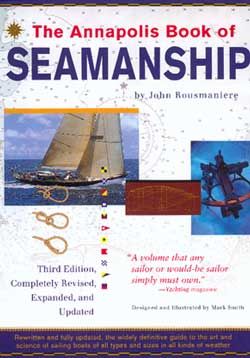LizzieMaine
Bartender
- Messages
- 33,825
- Location
- Where The Tourists Meet The Sea
Remember before the Internet when, when you needed to look up a fact or research a topic, you reached for a reference book? Those hefty tomes looked impressive on your shelves and they more than paid for themselves in the amount of valuable information they contained.
And with all the information you can find online, there's still a place for real reference books. Here's the ones I use most often:
The World Almanac, editions of 1923 thru 1963. If there's a date or a statistic I need for an article or even a forum post, these publications are authoritative.
Variety Radio Directory 1937-38 and 1938-1939. These volumes are invaluable references for information on radio personalities and their program credits, as well as information on behind-the-scenes personnel you'll find listed nowhere online and in very few modern books. In my articles and essays on radio history these books are consulted often.
The American Dance Band Discography: 1917-1942 by Brian Rust. These two volumes contain detailed information on just about every popular dance-band record released in the United States between the dawn of the dance-band era and the first Petrillo strike -- including recording dates, band personnel listings, and matrix numbers. For record collectors or just people who enjoy the music, you won't find this much information anywhere online. Equally useful is Rust's "Complete Entertainment Discography," which provides the same sort of information for the personality records of the Era.
Webster's New International Dictionary, Second Edition, 1941 printing. Still the best unabridged dictionary ever published in the United States -- what it lacks in modern slang/tech language it more than makes up in useful appendixes. And no book is better for just browsing when you're bored.
The Oxford Cyclopedic Concordance -- a concise, efficient index to the Bible. If you're trying to remember a particular verse and can only think of one or two words, a concordance will steer you exactly where you want to go. Most such books are big and bulky, but my edition of the Oxford is condensed to the most-often-searched-for terms, and includes topical references.
1941 Shop Manual, Chrysler Canada, Ltd. If you own an old car, and don't own the appropriate shop manual, you'll be sorry.
The phone book. Seriously. It's likely to be much more up-to-date than the often-outdated Google white pages listings.
Honorable mention goes to my 1937 edition of the Encyclopaedia Britannica. I don't consult it as often as I did in pre-Internet times, but aside from articles which have obviously dated, it's still a valuable reference to prewar history and the natural world, which you know hasn't been edited and reedited by somebody calling himself "Wikimonster." Plus it's still fun to just pull a volume off the shelf and browse.
And with all the information you can find online, there's still a place for real reference books. Here's the ones I use most often:
The World Almanac, editions of 1923 thru 1963. If there's a date or a statistic I need for an article or even a forum post, these publications are authoritative.
Variety Radio Directory 1937-38 and 1938-1939. These volumes are invaluable references for information on radio personalities and their program credits, as well as information on behind-the-scenes personnel you'll find listed nowhere online and in very few modern books. In my articles and essays on radio history these books are consulted often.
The American Dance Band Discography: 1917-1942 by Brian Rust. These two volumes contain detailed information on just about every popular dance-band record released in the United States between the dawn of the dance-band era and the first Petrillo strike -- including recording dates, band personnel listings, and matrix numbers. For record collectors or just people who enjoy the music, you won't find this much information anywhere online. Equally useful is Rust's "Complete Entertainment Discography," which provides the same sort of information for the personality records of the Era.
Webster's New International Dictionary, Second Edition, 1941 printing. Still the best unabridged dictionary ever published in the United States -- what it lacks in modern slang/tech language it more than makes up in useful appendixes. And no book is better for just browsing when you're bored.
The Oxford Cyclopedic Concordance -- a concise, efficient index to the Bible. If you're trying to remember a particular verse and can only think of one or two words, a concordance will steer you exactly where you want to go. Most such books are big and bulky, but my edition of the Oxford is condensed to the most-often-searched-for terms, and includes topical references.
1941 Shop Manual, Chrysler Canada, Ltd. If you own an old car, and don't own the appropriate shop manual, you'll be sorry.
The phone book. Seriously. It's likely to be much more up-to-date than the often-outdated Google white pages listings.
Honorable mention goes to my 1937 edition of the Encyclopaedia Britannica. I don't consult it as often as I did in pre-Internet times, but aside from articles which have obviously dated, it's still a valuable reference to prewar history and the natural world, which you know hasn't been edited and reedited by somebody calling himself "Wikimonster." Plus it's still fun to just pull a volume off the shelf and browse.
Last edited:



